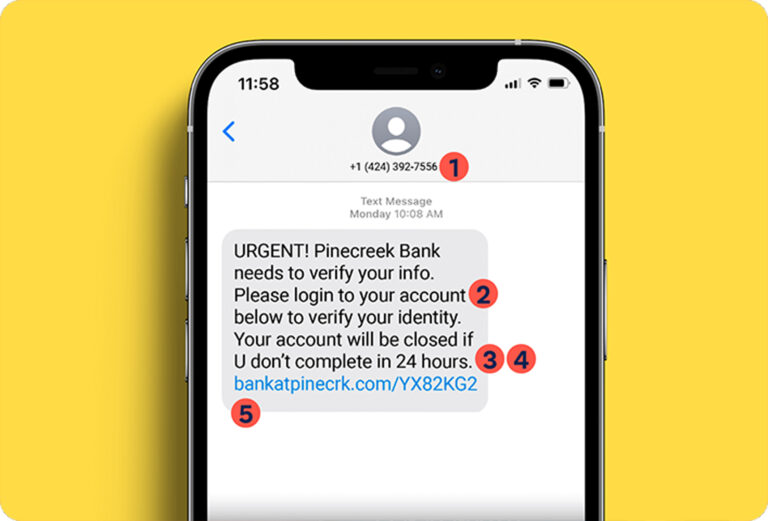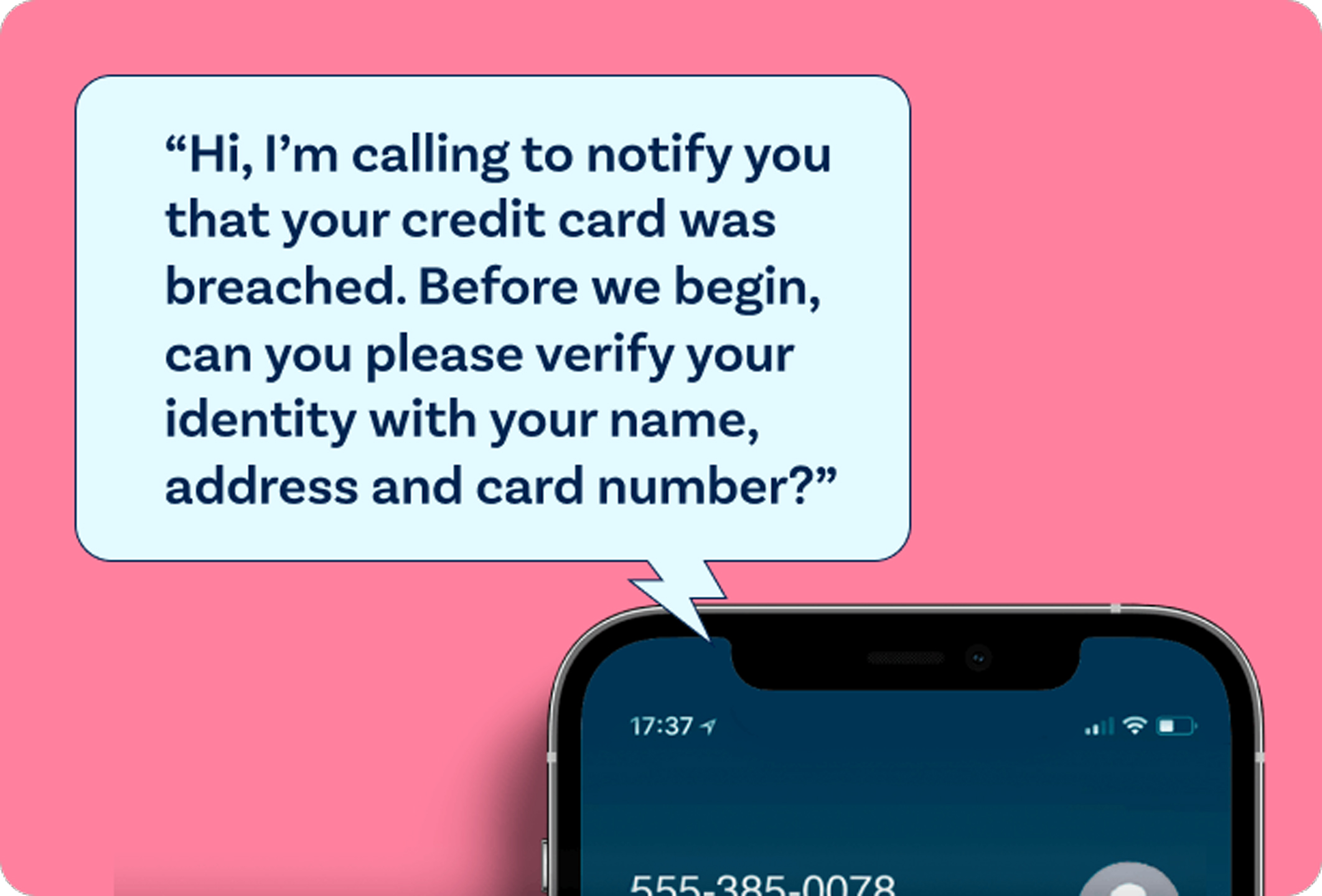Every day, thousands of people fall prey to fraudulent emails, texts and phone calls from scammers posing as their trusted financial institution. As we all lean more on online and mobile banking, the threat continues to grow. In fact, according to the Federal Trade Commission, American consumers lost a staggering $10 billion to phishing scams and other fraudulent activities in 2023 — a 13.6% increase from the previous year.
Online scams are much less scary when you know what to look for. At OlyFed, we’re dedicated to helping you stay one step ahead of fraudsters. That’s why we’ve partnered with the American Bankers Association in a nationwide effort to fight phishing, one scam at a time.
Remember, it starts with four key words: OlyFed Never Asks That. If something feels off, it probably is — and being aware can make all the difference in protecting your account.
FOUR COMMON BANKING SCAMS TO WATCH OUT FOR
 Text Messages
Text Messages
If you receive a text message from someone claiming to be us and they’re asking you to sign in or offer up your personal information, it’s likely a scam. OlyFed Never Asks That.
Phone Calls
Would we ever call you to verify your account number? No! OlyFed Never Asks That. If you’re ever in doubt that the caller is legitimate, just hang up and call us directly at 360-754-3400. There are several ways to contact us so please reach out when in doubt. We’re happy to help!
Emails
Watch out for emails that ask you to click a suspicious link or provide personal information. The sender may claim to be someone from one of our branches, but it’s likely a scam. OlyFed Never Asks That.
Payment Apps
Beware of text messages from someone claiming to be OlyFed saying your account has been hacked. The scammer may ask you to send money to a new account they’ve created for you, but that’s likely a scam! OlyFed Never Asks That.
You’ve probably seen some of these scams before and it could be helpful to share them with younger or older people that may not be as savvy yet. For tips, videos and an interactive quiz to help you keep phishing criminals at bay, visit www.BanksNeverAskThat.com. And be sure to share the webpage with your friends and family or download the easy-to-read PDF below.


